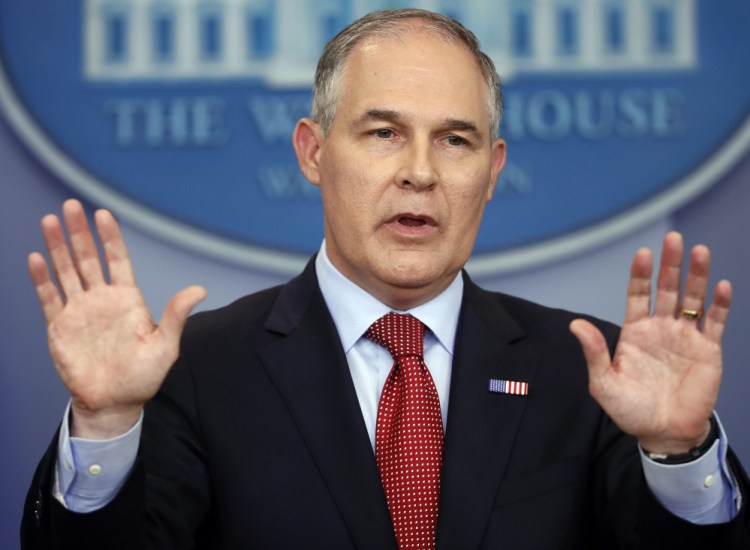WASHINGTON — President Trump’s administration will revoke a rule that gives the Environmental Protection Agency broad authority over regulating the pollution of wetlands and tributaries that run into the nation’s largest rivers, EPA Administrator Scott Pruitt said Tuesday.
Testifying before Congress, Pruitt – who earlier said he would recuse himself from working on active litigation related to the rule – said that the agency would “provide clarity” by “withdrawing” the rule and reverting standards to those adopted in 2008.
Pruitt, as Oklahoma attorney general, had sued EPA over the regulation, saying it “usurps” state authority, “unlawfully broadens” the definition of waters of the United States and imposes “numerous and costly obligations” on landowners.
A withdrawal was expected, based on the executive order Trump signed in February targeting the rule. But this is the first clear signal of how the EPA will act on the president’s order.
The current rule, known as Waters of the United States or WOTUS, unambiguously gives EPA and the Army Corps of Engineers authority that many think the agencies already possessed under the Clean Water Act. The 1972 law gave the agencies control over navigable rivers and interstate waterways, but a series of court rulings left the extent of that power ambiguous. The Obama administration sought to end a decade of confusion by finalizing the WOTUS rule, which took effect in August 2015, triggering protests from a variety of real estate development, agricultural and industrial interests.
The existing regulation covers wetlands adjacent to either traditional navigable waters or interstate waters, as well as streams serving as tributaries to navigable waters. The rule says that wetlands and tributaries must be “relatively permanent,” a phrase used in previous court opinions, which means they can be intermittent. Defining it this way extends federal jurisdiction to 60 percent of the water bodies in the United States.
Trump signed an executive order in late February calling on EPA and the Army Corps of Engineers to revisit the regulation, a move he described as “paving the way for the elimination of this very destructive and horrible rule.”
The executive order instructed the agencies to change the interpretation of a 2006 Supreme Court decision on what falls under the federal jurisdiction under the Clean Water Act.
Send questions/comments to the editors.


